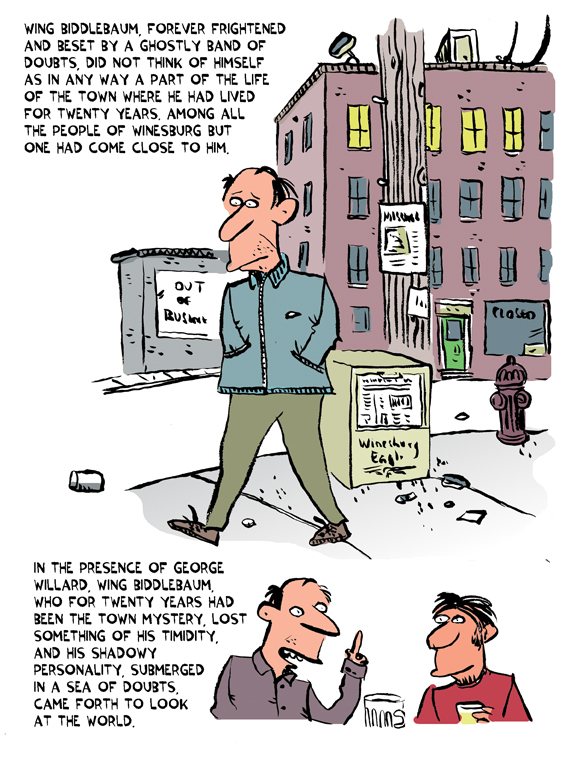
No-Talent Hacks Suck Up Millions, Degrade Culture
I hate celebrities.
Not in the particular. Many rich and famous people got that way by working hard, being talented and getting lucky.
Let me take that back. I do hate them in the particular.
Since two out of three of the required ingredients for success in our society, talent and luck, are beyond our control, it follows that no one deserves wealth or fame. But that’s not how we treat celebrities.
We worship them.
They’re in a class above, like gods. We fawn over them and gossip about them.
We’re even sad — really, truly grief-struck — when they die!
Like a dysfunctional relationship, all the love flows unidirectionally, from us to them. Insulated in first class, consulting with their private bankers and safe behind the guardbooths of their gated communities, they don’t care about us; they don’t know about us. They don’t give a crap and are, therefore, the sane ones.
There’s nothing inherently wrong with noticing achievements — when they result from moxie and grit. A person who, through effort and will (not luck or talent or some other accident of birth), transcends the norm to do something amazing, is worthy of celebration. The average passerby who runs into a burning building to save someone is a hero; a firefighter who draws a paycheck, received training and consciously chose the job is not.
Trouble arises when, as in America today, what a citizen has achieved by her own effort and courage is dwarfed by the tsunami of adulation she receives. Why do cable news anchorpeople end interviews with military generals by thanking them “for their service”? As with the firefighters, joining the army is a job. They chose it. There is nothing admirable about such service; to the contrary, they have enlisted as professional assassins in an institution that hasn’t engaged in a justifiable killing in three-quarters of a century. But even if you don’t feel that way (which means you do not live in Pakistan), these desk jockeys don’t fight. The biggest dangers they face are paper cuts and office politics. Thank them for their service? Screw that.
TV generals are celebrities. They are famous because The System has somehow elevated them above all others; we pay attention simply because they are famous.
At this writing, the gatekeepers of the media have decided that it is time for you to care deeply, not about something you should care about (homelessness, climate change, the class divide, mass species extinction, bands that are good but that you’ll never hear about), but the imminent birth of the Royal Baby of England to Prince Bill and Princess Kate.
“The royal couple can’t do anything else but wait,” we are told. Also: “the world [is] waiting.” Royal baby hype, when you think about it — but who has time? — is a Dagwood sandwich of absurdity. We’re not British and we really really really didn’t/don’t want to be. Even in the U.K., only a few dozen psychotic “royal watcher” dorks are paying attention. And the main takeaway — that “the Duke and Duchess of Cambridge’s baby will one day be Head of the Armed Forces, Supreme Governor of the Church of England, head of state of 16 countries and possibly if the role is maintained in the future, Head of the Commonwealth which covers 54 nations across the world and two billion citizens” — is belied by existence of one Prince Charles, age 64, still no closer to the throne since Queen Liz refuses to kick off. Poor Chuck! “I’ll run out of time soon. I shall have snuffed it if I’m not careful,” he confided last year. Once he too was a Royal Baby.
The Royal Baby is the ultimate celebrity — before having drawn a breath, (s)he has been dubbed Someone You’re Supposed to Know and Care About, and thus guaranteed a life of ease.
One almost longs for a miscarriage.
Everywhere you look, celebrities cash in — like that Los Angeles billboard icon Angelyne, for being famous for being famous. I wish they would all die. I wish the idea of celebrity would die.
Like Lena Dunham, who created the HBO show “Girls.” If Hades, God of the Underworld is reading, I would happily trade her in for the late investigative journalist Michael Hastings. Lena drives her burning car into a wall, Michael comes back, it’s all good. (Oh, Lord, now I’m doing it — intimatizing celebs as if I knew them, calling them by their first names.)
So Random House, which routinely rejects brilliant manuscripts by authors who would have been thrilled to have landed $35,000, bought her upcoming collection of “personal essays about sex, mortality and food” for $3.5 million.
Dunham is 26. Maybe she can write, but there’s no way to tell that from her show, which has the distinction of being the only truly dreadful show HBO has ever aired — awful writing, lame acting, insipid plots. Why is Random paying her one hundred advances for one book? Why did HBO sign her? Why does The New York Times cover her show so relentlessly?
Well, as The Guardian notes: “Dunham’s parents are both well-known members of the art world and the girls of Girls are all children of famous parents. Zosia Mamet (Shoshanna) is the daughter of playwright David Mamet, Jemima Kirke (Jessa) is the daughter of former Bad Company drummer Simon Kirke and Allison Williams (Marnie) is the daughter of newscaster Brian Williams.”
As with the Royal Baby, heredity more than makes up for lack of talent.
Magazine covers: they run what sells, what sells is what’s famous, what’s famous is celebrity. The covers make the celebrities even more famous. Which makes everyone else more obscure.
Take, for example, the Clinton family.
To Guantánamo, ideally.
First there’s Bill, whose presidency stands as a memorial to squandered opportunity: screwed up healthcare, sucked up to Republicans and got himself impeached after pushing through two significant policy changes — NAFTA and “ending welfare as we know it” — that screwed millions of Americans. Oh, and didn’t leave behind a single new social program despite presiding over the Internet-fueled Biggest Boom of All Time.
Unlike, say, Jimmy Carter, Bill hasn’t done much as ex-president either. Yet he’s making bank as a speaker: $13.4 million in 2012 alone.
What does Bill have to say that’s worth so much money? Nothing. I’ve seen him speak several times. He’s pretty boring. “The work he does around the world has given him a very unique perspective,” claims Vancouver-based communications exec Norman Stowe. “Not just a former president’s perspective, but also the very unique perspective from his philanthropic work.”
Bullshit. People pay to see Bill because he’s famous. Now he’s famous for earning a lot of money for speaking. Which makes more people want to pay him.
Clinton collected $500,000 for yapping at ex-Israeli President Shimon Peres’ 90th birthday party. Assuming he would have lived through them, Peres could have had 100 first-rate experts on a variety of important subjects speak to him for the same amount.
Sick.
Now his wife Hillary is cashing in on the lecture circuit. Hillary Clinton’s main accomplishment is having married Bill. And putting up with him. And daughter Chelsea isn’t far behind. Three famous Clintons with nothing to say, no accomplishments to point to, $100 million richer just for being famous.
Does it matter? You bet. Celebrities suck the air out of the room, depriving more important issues, and the people who advocate for them, from media attention and thus an audience. They collect money, as with those book advances, that would do society a lot more good in more hands. By attracting so much attention, by being so insipid and famous at the same time, they warp our values and our politics.
What to do instead? Quentin Tarantino has it right. He plucks talented actors out of obscurity and elevates them. Christoph Waltz’s brilliant turns as a sadistic SS officer in “Inglorious Basterds” and as a dangerous dentist and bounty hunter in “Django Unchained” rate as some of the best performances in cinema of the last few years.
Thank God, no one is putting Waltz on any magazine covers. Yet.
(Ted Rall’s website is rall.com. His book “After We Kill You, We Will Welcome You Back As Honored Guests: Unembedded in Afghanistan” will be released in 2014 by Farrar, Straus & Giroux.)
COPYRIGHT 2013 TED RALL



